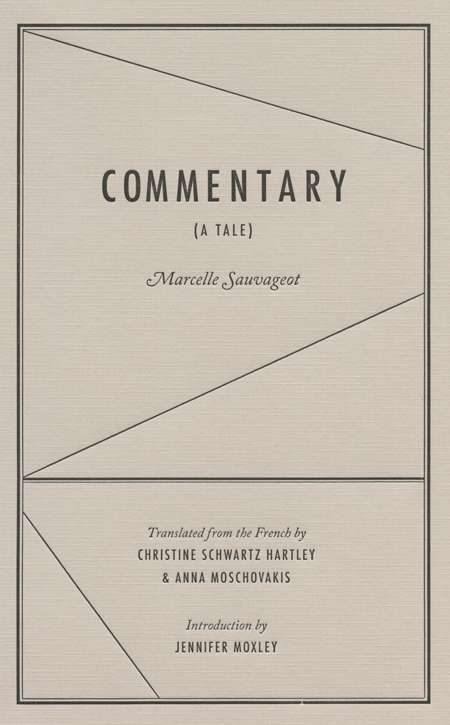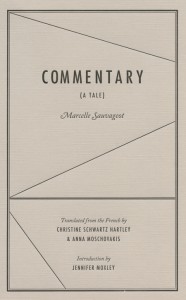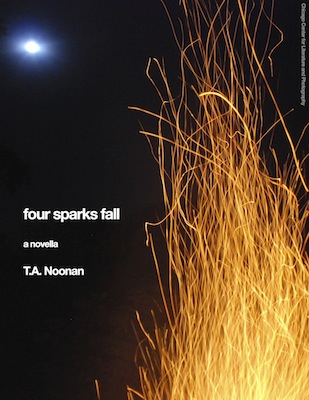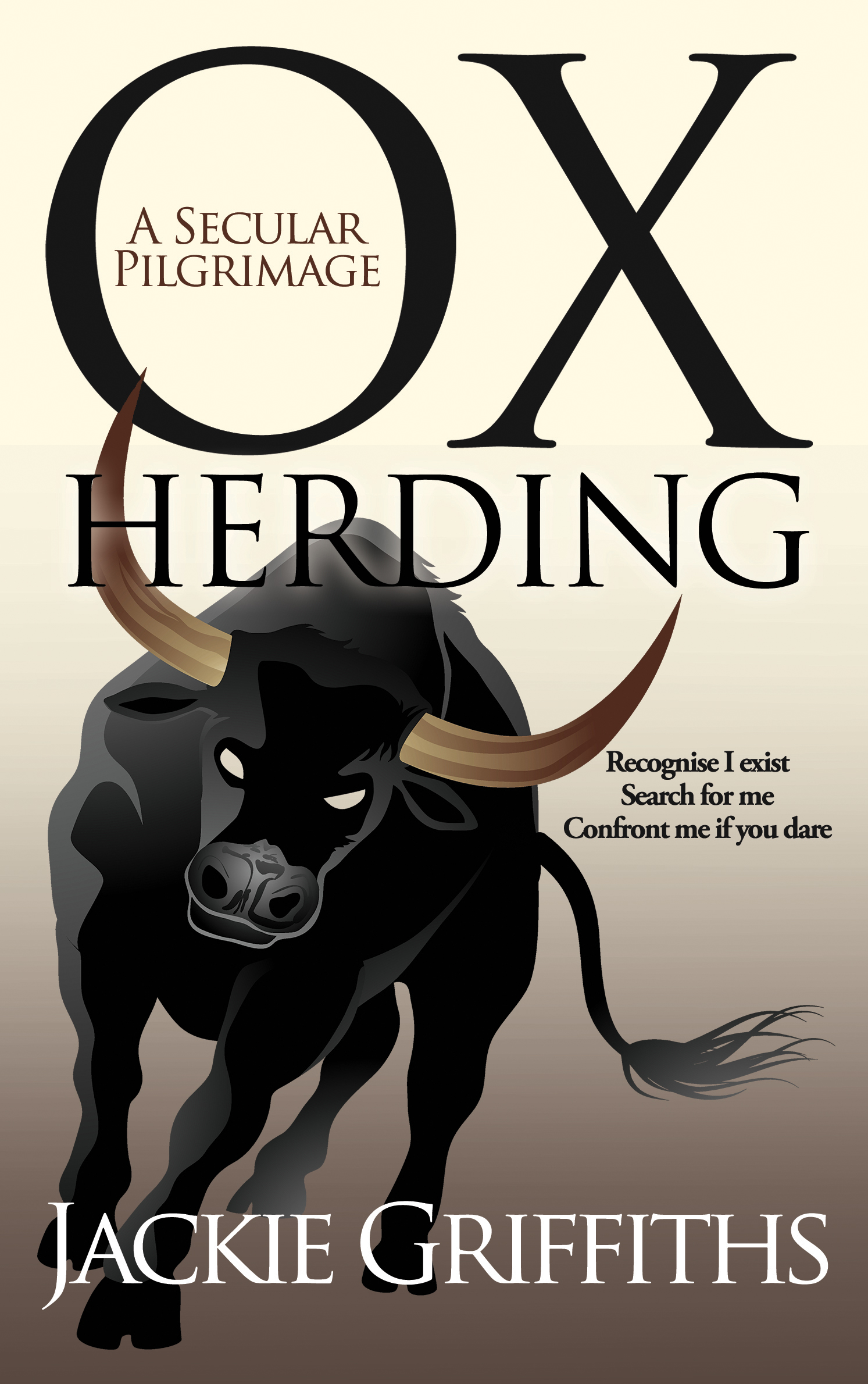Commentary (A Tale) by Marcelle Sauvageot (trans. Christine Schwartz Hartley & Anna Moschovakis)
-Reviewed by Cath Barton-
Reading Commentary (A Tale), described by the publisher as ‘a narrative hovering between the genres of memoir, theory and fiction’, you have constantly to remind yourself that it was written in 1930 and not in the past twenty years. Marcelle Sauvageot’s only published work is of a frankness and psychological insight remarkable for its time. It is a crystalline examination of her relationship with her lover, named only as ‘Baby’.
What is particularly remarkable is the writer’s awareness, and her ability to convey this clearly, of the nature of her feelings towards the lover who is slipping away from her. She is able to identify the way in which a part of her remains an observer of her feelings for him, and the positive consequences of that:
“I don’t mind losing my head, but I want to capture the moment when I lose it, to push my understanding of my abdicating consciousness as far as it can go. We must not be absent from our own happiness.”
Marcelle – for it is surely her own story, however much (or little) fictionalised – had sought a double, and she recognises the differences between male and female desires and the unequal power balance between them which make for the ultimate failure of this undertaking. She draws a telling analogy with a man admiring a cat:
“Is the man caressing a beautiful Siamese cat hoping to find out what the animal’s light eyes are saying? Or does he think that the caress itself is the only thing that can cause the animal to be moved?”
She examines the man’s desire to conquer and the different subtleties in male and female understanding of the concepts of love and friendship. This is far from dispassionate. She is a woman who feels the pain of rejection, and that pain is intensified by her illness. Her hopes for a cure are bound up with her hopes for her love to be fully reciprocated. Neither will come to pass – we, the readers, know that she will die of the tuberculosis which racks her body as much as the grief of her lost love racks her mind and her psyche. And yet, in this narrative, she demonstrates a dignity, a return to self:
“You are gone, but I am finding myself again, and I am less alone than I was during the days when I was looking for you. I have come back to myself, and with myself, I will fight to carry on.”
At the end of the book Marcelle is at a dance with her fellow patients at the sanatorium where she is a patient. Whether this be a real or imagined event, it is one where she is free of the past and free of pain, at least for one night.
This a luminous narrative, compared by the author and journalist Robert Brassilach (as quoted by the academic Jean Mouton in an essay also included in the book) to the final pages of the great English short-story writer Katherine Mansfield’s Journal. Mansfield’s book was first published in 1927 and reissued in 2006 by Persephone, an imprint which specialises in ‘reprints of neglected fiction and non-fiction by mid-twentieth century (mostly) women writers’. Ugly Duckling Presse, publisher of Commentary, is fulfilling a semi-parallel role in the US, championing ‘forgotten’ writers. This first English translation of Commentary comes in their Dossier series, of which co-translator Anna Moschovakis is Series Editor.
Commentary is a deceptively short work, one to which as a reader I feel sure I will return. There is in it much to ponder and to relish, and in a translation which safeguards the beauty of expression of its author.

Reviewed by Cath Barton — Cath Barton’s prize-winning novella The Plankton Collector (2018) is published by New Welsh Rarebyte and her second novella, In the Sweep of the Bay (2020), by Louise Walter Books. Cath is also active in the on-line flash fiction community.
Photo © Toril Brancher
Twitter: @CathBarton1 | Website: cathbarton.com






